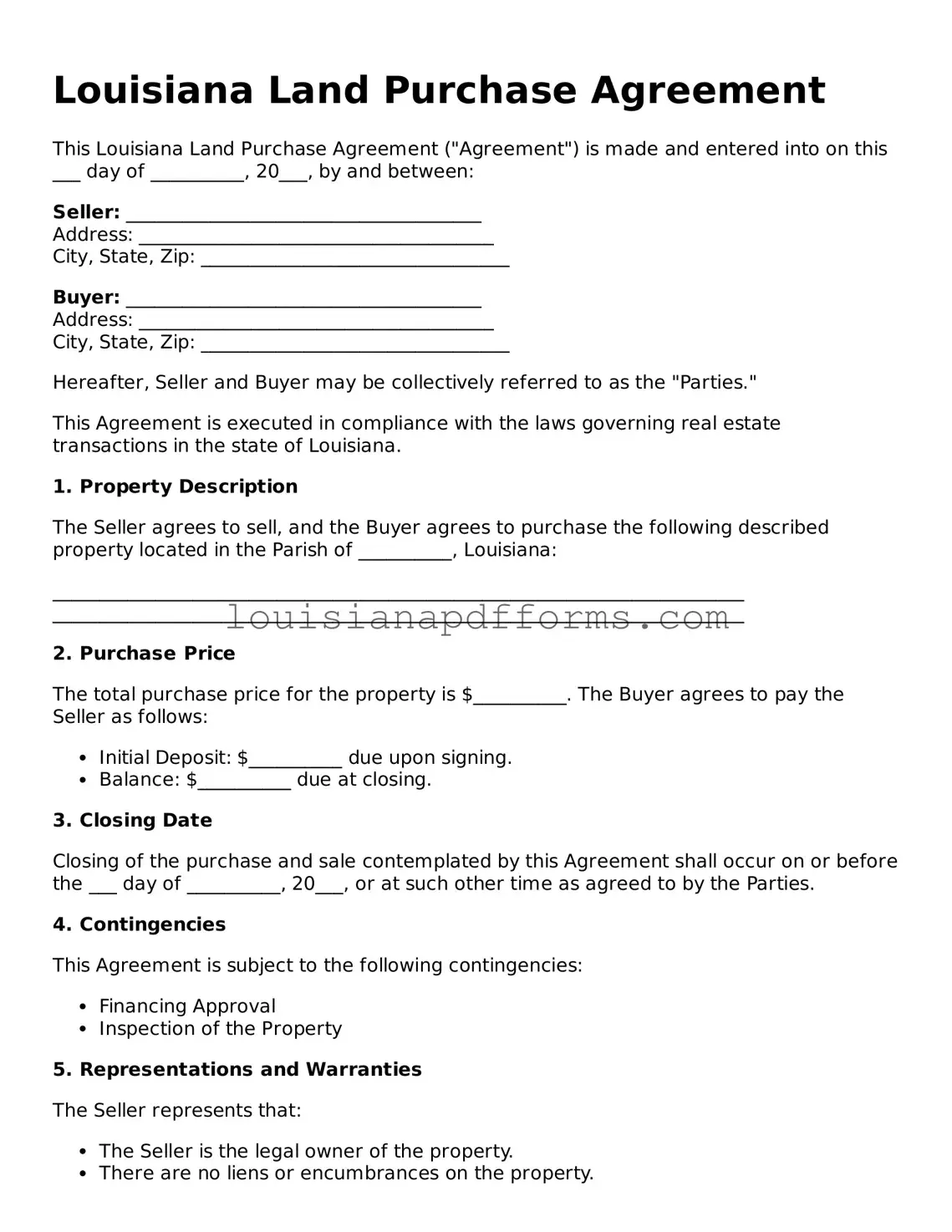Louisiana Land Purchase Agreement Form
The Louisiana Land Purchase Agreement form is a legal document used to outline the terms and conditions of purchasing land in Louisiana. This agreement serves to protect both the buyer and seller by clearly defining their rights and responsibilities. Understanding this form is crucial for anyone looking to navigate the real estate market in the Pelican State.
Access My Document Now

Louisiana Land Purchase Agreement Form
Access My Document Now

Access My Document Now
or
Free Land Purchase Agreement
You’re halfway through — finish the form
Edit, save, and download your completed Land Purchase Agreement online.